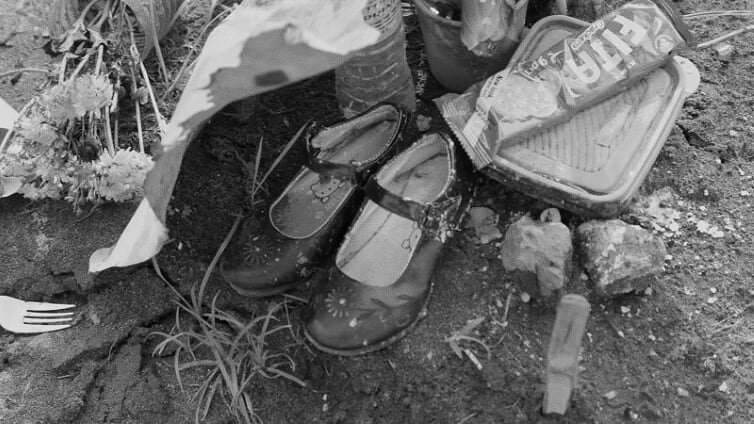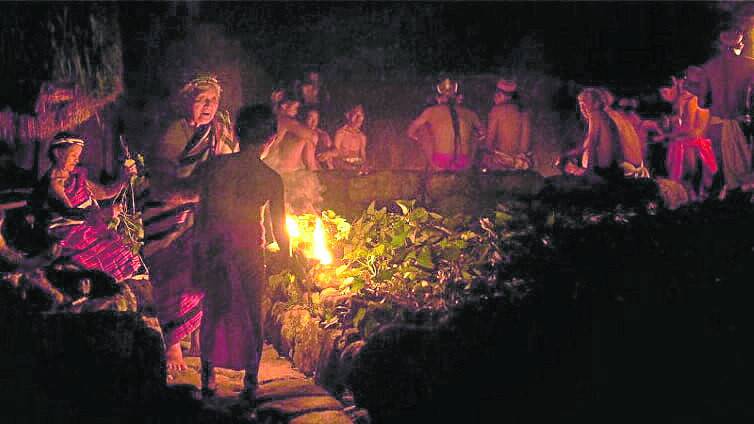Takeaways from Cinemalaya's first online independent film festival
A good fine morning to Manila, and we’re here to look at a few takeaways from the recent Cinemalaya 16 independent film festival held this August, no longer at the CCP by the bay, but mostly online via Vimeo.
First off, congratulations to the winners of the short films in competition, the full-length feature category having been postponed to next year. Carla Ocampo’s Tokwifi for Best Film and Netpac Jury Award, Joanna Arong’s Ang Pagpakalma Sa Unos as Special Jury Prize winner, Hubert Tibi’s Best Screenplay for Pabasa Kan Pasyon, Best Director for Martika Escobar and Living Things, and Audience Choice awardee for Quing Lalam Ning Aldo by Reeden Fajardo. A toast to them all from the shuttered bars of Malate.
In any event, the non-competition entrees as well as a handful of full-length features from past editions, and also some features on directors that Cinemalaya had made prescient if not altogether heralding the new wave, also provided some worthy highlights on the miniature cellphone screen.
There’s Mikhail Red, in more ways than one a child of the independent film circuit, and in the bundle available for streaming was most impressive in his full length from 2013, Rekorder, and a couple of shorts earlier in the decade, Harang and Hazard.

Previously we were familiar with his work only through Birdshot, also originally screened at Cinemalaya but which was also selected for the Pista ng Pelikulang Pilipino of the Film Development Council that features the best of the local film fests. Too, Neomanila that showcases the director’s obsession with a city falling apart although there is no other city.
Rekorder obviously is a standout, and shows the filmmaker’s strengths: visually compelling material well-grounded in the basics — both quick shot and panning — with protagonist a certified loner who pirates movies through his old model camcorder in the cineplexes, a character study straight out of Scorsese’s Taxi Driver; you half expected Jackson Browne’s Late for the Sky to play somewhere in the urban wasteland of desperation. If you haven’t seen Rekorder, you might as well have missed a blood brother to Taxi Driver. A salute, then, to the empire of the son.

Red’s double-barreled shorts Harang (The barriers, not to be confused with MMDA’s concrete barriers) and Hazard were no slouches either, and early on display the filmmaker’s penchant for deadly satire if not irony, in sequences and situations verging on nightmare and cycles of accidental in flagrante delicto. Hard to explain, really, except that they can also make you chuckle, however uneasily, because — watch out now — the absurd is commonplace and can happen to anyone. Not to put pressure on the kid, but suffice to say that Mikhail is well on his way to becoming a major talent in local cinema if he isn’t already, and we look forward to his future works.
Another focus of the 16th edition is a clutch of shorts by the heretofore obscure Sheron Dayoc, in a special section called “The Roaring Silence of Sheron.” Reminds us that cinema is primarily visual, and this the filmmaker drums into our thick skulls with aplomb. Indeed, these shorts barely have dialogue, save maybe for the latest The Shoemaker (2019) or a December romance à la Marikina, which only the roaring could have thought up and with Soliman Cruz doing another quick tour de force.
Not to be outdone either is Mientras Su Dormida (As He Sleeps) from 2012 that has an unforgettable Sue Prado ministering to a paralytic husband and how she gets by day to day, sidestepping the pitfalls of desire. Excellent classical soundtrack too, as though plucked from a stray waking dream. The two earlier shorts from 2008, Angan-angan and Trails of Water already show much promise if not a visual cornucopia waiting to happen. Hooray for Sheron and can’t wait to watch the full-length work, perhaps in another bundle of silent darkness, our old friend.
Other notables in this year’s festival are early works of the new generation, such as Joel Ruiz and his now-classic short Mansyon from the maiden edition, the debut of writer and controversial filmmaker Alvin Yapan in Rollo, as well as initial steps of Zig Dulay, Dan Villegas, Pepe Diokno, and the works of women directors Sigrid Andrea Bernardo and Hannah Espia, signaling the prevalence of the fairer sex garnering the major awards in Cinemalaya 16.
What else to conclude, Manila, but that there is life after poverty porn, beyond the urban blight and handheld camera trailing through the eskinitas of perdition, drug war and pedicab sex, the coming-of-age cute romances and scrambling countryside where kites are rare species tugging at winds blowing in the only direction we know out of a maze of contagion?


